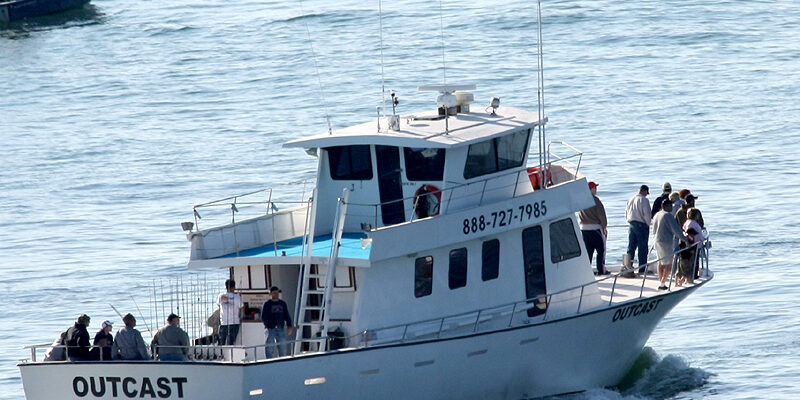Per recent federal mandates, charter boat captains who take sightseers out into the Gulf of Mexico must spend their own money to install expensive GPS-tracking equipment onto their vessels.
This is because the feds want to track those captains and their every move.
Three years ago, this rule prompted seven charter boat captains, including one from Venice, LA, to file a class-action complaint against the federal government in the Eastern District of Louisiana.
Those captains may now rejoice, thanks to a recent ruling from the New Orleans-based U.S. Court of Appeals for the Fifth Circuit. Late last month, the court ruled the feds, by enforcing this policy, “committed multiple independent Administrative Procedure Act (APA) violations, and very likely violated the Fourth Amendment.”
The APA governs the process by which federal agencies develop and issue regulations.
To comply with the regulation, captains must pay $3,000 to install a National Marine Fisheries Service (NMFS)-approved Vessel Monitoring System (VMS) hardware and software. These devices transmit their vessel’s GPS location to the feds at least once an hour, 24 hours a day, every day of the year. This rule also costs captains an extra $40 to $75 per month in service fees.
“These are significant fees for charter-boat owners, for they primarily operate small businesses, with roughly $26,000 per year in net income,” according to the Fifth Circuit.
“And in addition to the financial cost, of course, the regulation imposes a massive privacy cost; demanding that charter-boat owners transmit their exact location to the government, every hour of every day forever, regardless of why they are using the vessel.”
Members of the NMFS, the U.S. Department of Commerce, and the National Oceanic and Atmospheric Administration (NOAA) imposed and enforce the policy. They say it doesn’t matter whether the captains use their boats for commercial or personal purposes.
Charter boat captains, under the current rules, must also submit a report to NMFS before they offload any fish. They must detail all fish harvested and discarded. And before they take a boat out to sea, charter boat captains must also submit a trip declaration to NMFS to state whether the trip is or-hire, fishing/recreational, or non-fishing.
Charter boat owners, the Fifth Circuit went on to say, already had to report all the information the feds say the GPA-tracking equipment was designed to collect — including where they are going and how long they expect their trip to take.
Advertisement
“What is more, the record lacks any evidence that charter-boat owners fail to accurately report their trips,” court officials said.
“Indeed, when asked at oral argument to identify one instance in which NOAA or NMFS documented inaccurate trip reporting, counsel for the government failed to do so.”
The NMFS is tasked with conserving and managing the nation’s fisheries, but court officials said members of that agency failed to connect the GPS-tracking requirement with any legitimate conservation purpose.
Charter vessels range in size from 30 to 40 feet and usually serve small businesses, sometimes six to eight passengers, for sightseeing.
Although recreational fishing is one of a charter boat’s primary uses, Fifth Circuit officials said the number of fish that anglers catch aboard a charter boat is relatively small. Charter-boat fishing, the court went on to say, accounts for an estimated 0.20 percent of annual fishing in the Gulf of Mexico.
Advertisement
Advertisement

